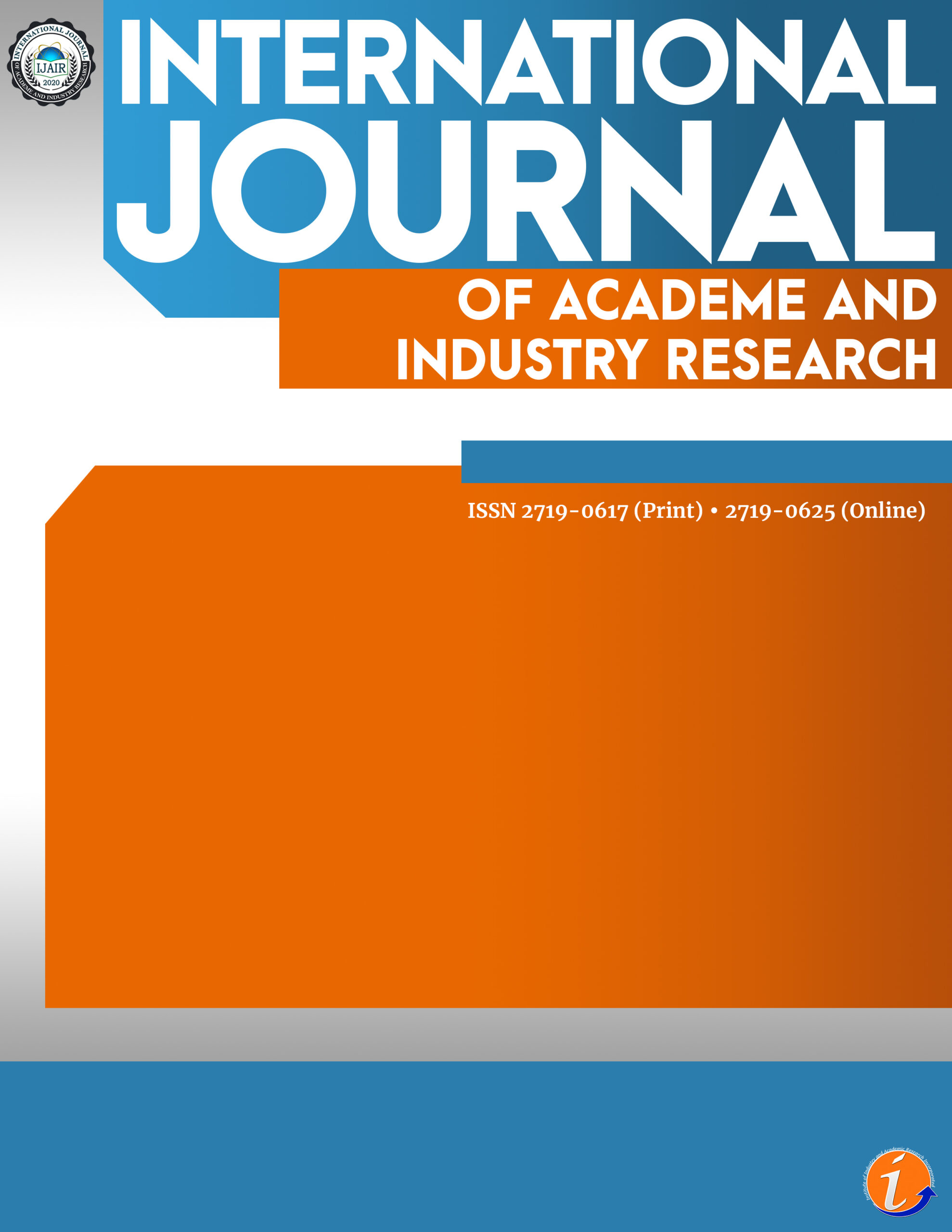As the Commission on Higher Education (CHED) encourages all institutions to conduct a study determining the graduates job performance, this study determined the status of the Bachelor of Science in Hotel and Restaurant Management (BSHRM) graduates from Central Mindanao University. Through descriptive research design, employers’ feedback was gathered as baseline for assessing the program effectiveness and further improve curriculum offerings. The study used survey instrument to collect data from employers of the 62 of 70 Graduate School Alumni. Results of the investigation showed a significant relationship between the profile of the alumni and their employment data after earning the degree program at the University. Stepwise regression analysis indicated that each graduate student attained most of the skills gained throughout the program. Furthermore, employers rated the graduates excellent thereby reflecting an effective job performance based on collaboration, commitment, credibility, and competence. Based on the findings, the study recommends further identification and keeping track of the progress in the new curriculum for the formulation of student support.
graduates, employment, employers, feedback, performance, credibility
Faybe Trizha G. Gaite. Corresponding author. College of Human Ecology, Central Mindanao University
Rubie A. Arroyo. Doctor of Management, Associate Professor V, Department of Hospitality Management, College of Human Ecology, Central Mindanao University
Patrishia Jade Lim. College of Human Ecology, Central Mindanao University
Princess Mae E. Vergara. College of Human Ecology, Central Mindanao University
Janice A. Doria. College of Human Ecology, Central Mindanao University
Aquino, A. B., Del Mundo, C. O., & Quizon, G. R. (2015, November). Employers’ Feedbacks on the Performance of Teacher Education Graduates. Asia Pacific Journal of Multidisciplinary Research, 3(4).
Arroyo, R. (2016). Level of OJT Performance of the On Campus and Off Campus Practicumers. Van Haren Publishing.
Bay, A. B., An, I. L., & Laguador, J. M. (2014). Organizational Satisfaction and Work Engagement of Filipino Teachers in an Asian University. International Journal of Multidisciplinary Academic Research, 2(4).
Breevaart, K., Bakker, A. B., & Demerouti, E. (2014, February). Daily self-management and employee work engagement. Journal of Vocational Behavior, 84(1), 31–38. https://doi.org/10.1016/j.jvb.2013.11.002
Bilsland, C., Nagy, H., & Smith, P. (2014). Planning the Journey to Best Practice in Developing Employability Skills: Transnational University Internships in Vietnam. New Zealand Association for Cooperatives Education, 15(2).
Carter, D. A., Simkins, B. J., & Simpson, W. G. (2003). Corporate Governance, Board Diversity, and Firm Value. The Financial Review, 38(1), 33–53. https://doi.org/10.1111/1540-6288.00034
Cheng, M., Adekola, O., Albia, J., & Cai, S. (2021). Employability in higher education: a review of key stakeholders’ perspectives. Higher Education Evaluation and Development, 16(1), 16–31. https://doi.org/10.1108/heed-03-2021-0025
Dotong, C. I., Chavez, N. H., Pamplona, M. A. I., & Camello, N. C. (2017, January). Employers’ Feedback on Job Performance of Engineering Graduates in one Private Academic Institution in the Philippines. Asia Pacific Journal of Education, Arts and Sciences, 4(1).
De Castro, E. L., Prenda, M. T. B., Dolot, J. A., Laguador, J. M., & Dotong, C. I. (2016). Employers’ Feedback on the Job Performance of Computer Engineering Graduates in an Asian Academic Institution. Asia Pacific Journal of Education, Arts and Sciences, 3(3).
Espellita, S., & Maravilla Jr, V. S. (2019). Employable Skills for Hospitality Graduates as Perceived Among Hotel Supervisors in Cebu City. SSRN Electronic Journal. https://doi.org/10.2139/ssrn.3413659
Gerards, R., de Grip, A., & Baudewijns, C. (2018). Do new ways of working increase work engagement? Personnel Review, 47(2), 517–534. https://doi.org/10.1108/pr-02-2017-0050
Hussein, I. E., Abou-Shouk, M., & Khalifa, G. S. A. (Eds.). (2013). Evaluating Tourism and Hospitality Graduates: Perceptions of Stakeholders in Egypt.
Laguador, J. M. (2013). Students’ Interest in Engineering and Average Final Grade in Mathematics as Factors in Program Retention. IAMURE International Journal of Multidisciplinary Research, 5(1). https://doi.org/10.7718/iamure.v5i1.615
Manhotoma, M. G., & Mahachi, D. (2014). A Comparative Analysis Of Human Resource Policies And Practices On Employee Performance And Sustainability Of Hotel Organisations In Botswana. European Scientific Journal, ESJ, 10(10). https://doi.org/10.19044/esj.2014.v10n10p%p
Mehrotra, A., & Elias, H. (2017, April). Employer’s Feedback on Business Graduates. Journal of WEI Business and Economics, 6(1–2).
Reddy, C. (2020b, June 8). Hiring Young Employees Advantages and Disadvantages. Wisestep. Retrieved September 16, 2022, from https://content.wisestep.com/advantages-disadvantages-hiring-young-employees/
Shariff, N. M., Kayatt, K., & Abidin, A. Z. (2014). Tourism and Hospitality Graduates Competencies: Industry Perceptions and Expectations in the Malaysian Perspectives. World Applied Sciences Journal, 31(11). https://doi.org/10.5829/idosi.wasj.2014.31.11.718
Singh, S. (2018). The impact of employee engagement on organisational performance-a case of an insurance brokerage company in Gauteng. IOSR Journal of Business and Management, 20(6), 66-76. https://doi.org/10.9790/487X-2006076676
Study, D. J., & Kottke, J. L. (n.d.-b). Another Model of Employability? Considering the RAW Framework. In Nanopdf.com. https://nanopdf.com/download/another-model-of-employability-considering-the-raw-framework_pdf#modals
Tan, Z. M. A., Baharun, N., Wazir, N. M., Ngelambong, A. A., Ali, N. M., Ghazali, N., & Tarmazi, S. A. A. (2016). Graduates’ Perception on the Factors Affecting Commitment to Pursue Career in the Hospitality Industry. Procedia – Social and Behavioral Sciences, 224, 416–420. https://doi.org/10.1016/j.sbspro.2016.05.410
Wellman, N. (2010). The employability attributes required of new marketing graduates. Marketing Intelligence & Planning, 28(7), 908–930. https://doi.org/10.1108/02634501011086490
Zeijen, M. E., Peeters, M. C., & Hakanen, J. J. (2018). Workaholism versus work engagement and job crafting: What is the role of self-management strategies? Human Resource Management Journal, 28(2), 357–373. https://doi.org/10.1111/1748-8583.12187
Cite this article:
Gaite, F.G., Arroyo, R.A., Lim, P., Vergara, P.E. & Doria, J.A. (2022). Employers’ feedback on job performance of Hotel and Restaurant Management graduates. International Journal of Academe and Industry Research, 3(4), 129-144. https://doi.org/10.53378/352944
License:
![]()
This work is licensed under a Creative Commons Attribution (CC BY 4.0) International License.










